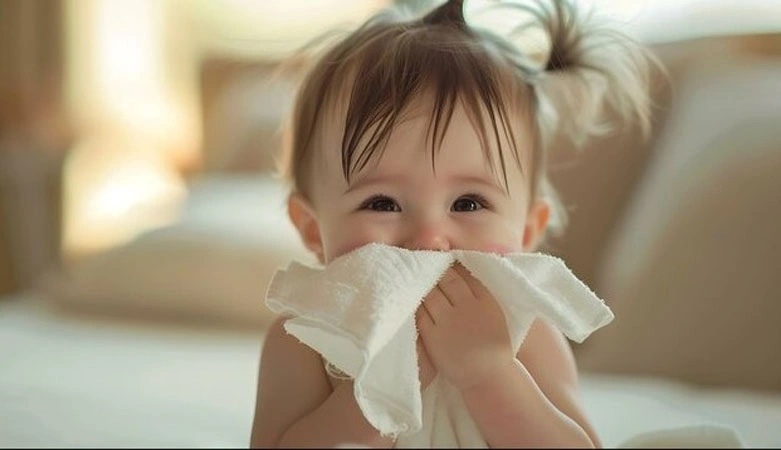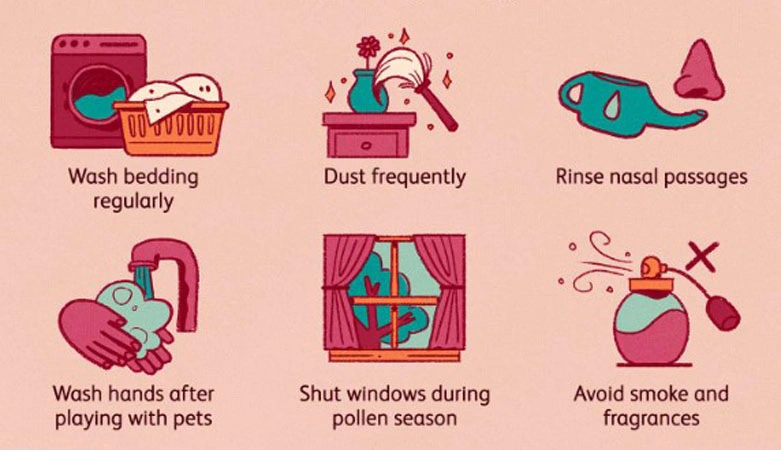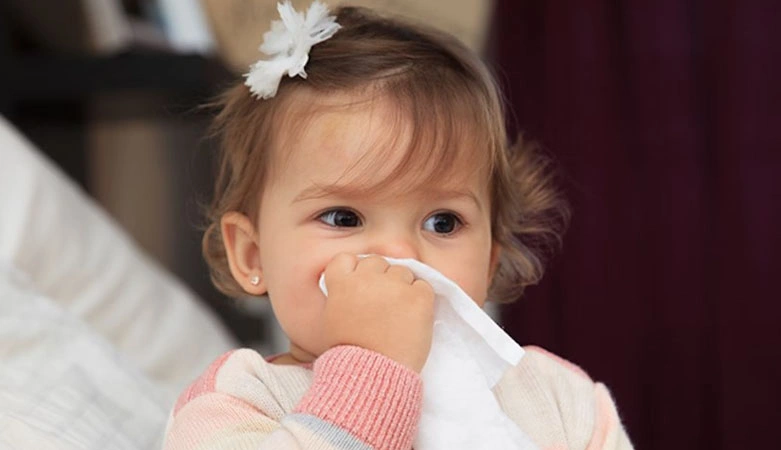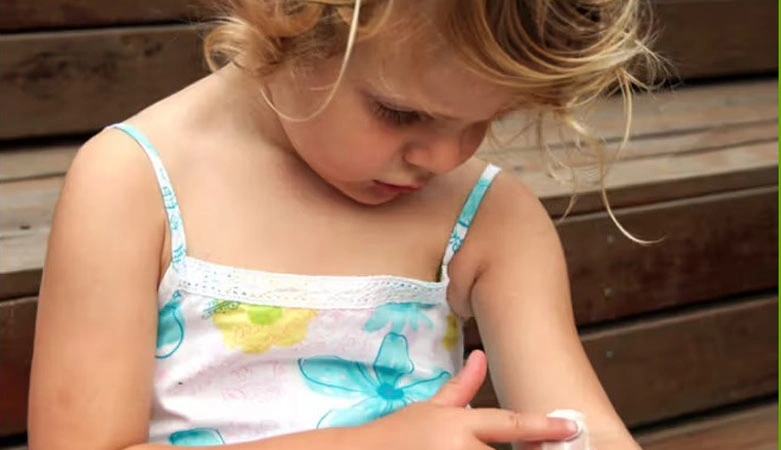Can Babies Get Hay Fever?
- Lifestyle
-
- UPDATED November 23, 2024
by Tasha Mayberry
995 shares

When the weather changes, with the sun shining and days getting warmer, the whole country rejoices and welcomes the much-awaited warm summer months. But, not everyone welcomes this season very fondly, because some get going with allergies, like watering eyes, itchy nose, etc., as soon as the warmer months begin.
These are seasonal allergies, also widely known as hay fever, or allergic rhinitis. Basically, they are allergy symptoms that appear during specific times of the year, during the times when the weather gets warmer, and the trees, weeds, and grasses release pollen into the air for other plants to fertilize. Some people are allergic to pollen and their immune system releases certain chemicals to fight these allergens; it is this release of chemicals that triggers the allergy symptoms in those individuals, and these symptoms include runny nose, sneezing, congestion, itchy red eyes, and fatigue.
Can babies get hay fever?
Yes! But, the occurrence is known to be less in children under the age of five.
Unfortunately, when babies are involved, the tricky aspect is that you cannot easily differentiate between hay fever and common summer cold.
Common Triggers of Hay Fever
Most allergens that cause hay fever in babies float in the air, and they easily get in the nose when babies breathe. Some of the common allergens/triggers are:
Pollens
As mentioned earlier, pollens are released by trees, grass, molds, and weeds, and this happens in different seasons. Since pollens are in the air, there is no possible way to stay away from them, which is why they easily lead to seasonal nasal allergies or hay fever, which in most cases carry on throughout a specific season.
Dust
All the dust around your house could also be a serious trigger of hay fever in babies. This is because of the presence of allergens in them, like mold, dust mites, etc., and this trigger can cause allergic rhinitis all year round.
Pets
Pets, like dogs, cats, rabbits, etc., are yet another common cause of nasal allergies in babies. If you happen to own a pet that your baby is allergic to, you might notice the symptoms lingering all the time.

Symptoms of Hay Fever in Babies
What are the symptoms that you need to look out for to know if your baby has hay fever? The symptoms are very much similar to those encountered by adults with hay fever, and those are:
Watery or red eyes or both.
Constant rubbing of eyes because of itchiness.
Constant runny nose with clear mucus rather than thick, colored mucus.
Nasal congestion.
Frequent sneezing, especially when they are outdoors surrounded by trees and other greenery.
Swollen eyes.
Wheezing.
Since hay fever is seasonal, as discussed, you will notice the symptoms in your baby during the summer months, which would be pollen season, most likely during the same months as last year, which would be a clear indication that your little one has hay fever. However, do keep in mind that if the allergy symptoms seem to last all year round, the issue could be something else, maybe a different type of allergy, and you should see your pediatrician or
general physician sort it out.

Diagnosis and Treatment
It is best to see the doctor, your child’s pediatrician, or a general physician, to make sure that it is in fact hay fever that your baby is suffering from and not something else that needs immediate attention. Since hay fever is often associated with conditions like eczema and asthma, which are passed down in family genes, your doctor will most likely look into the medical history of both you and your baby.
When it comes to treatment, most doctors do not prescribe medicines for hay fever in babies less than 12 months of age, unless it seems to affect their breathing ability. In this case, there are a few things you could do from your end to help relieve the symptoms:
Firstly, learn the pollen count in your locality by visiting websites like Pollen.com,
and when you know that the count is high or the weather seems to be windy that day, avoid taking your baby outdoors. When you head out, use a wide brimmed hat on your baby to prevent pollen from hitting their face as much as possible. Whenever you get back home from outside, use cool water to wash your little one’s face to remove any pollen and change their clothes.
To protect your baby’s eyes from pollen, use wraparound sunglasses.
Use Vaseline, or any other baby-friendly nasal balm, around your child’s nose to
prevent pollen from getting into their nose. Avoid taking your baby to parks when you know that the pollen count is high. Another indicator of when to avoid taking your baby to the park is when the grass is freshly cut. During these days, you could take them to the beach or just go for a stroll on the city streets. During peak summer/pollen season, do not hang your baby’s clothes outside to dry.
This, of course, will prevent pollen from attaching to their cloth fibers. Keep the windows in your house closed during pollen season, and also that of your
car when you head out.
Understand that hay fever is very common even in babies, and you can keep the symptoms under control with medicines from your baby’s doctor. For babies less than a year old, following the pointers given above will help manage the situation to a great extent.
